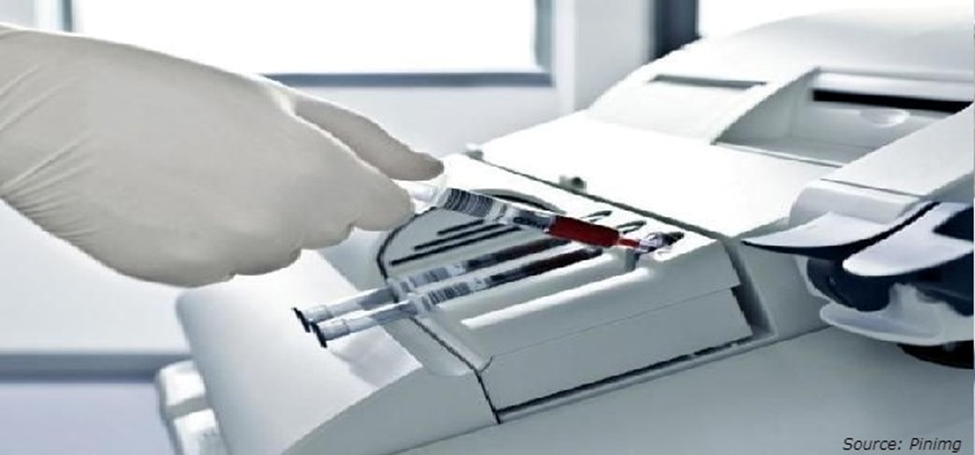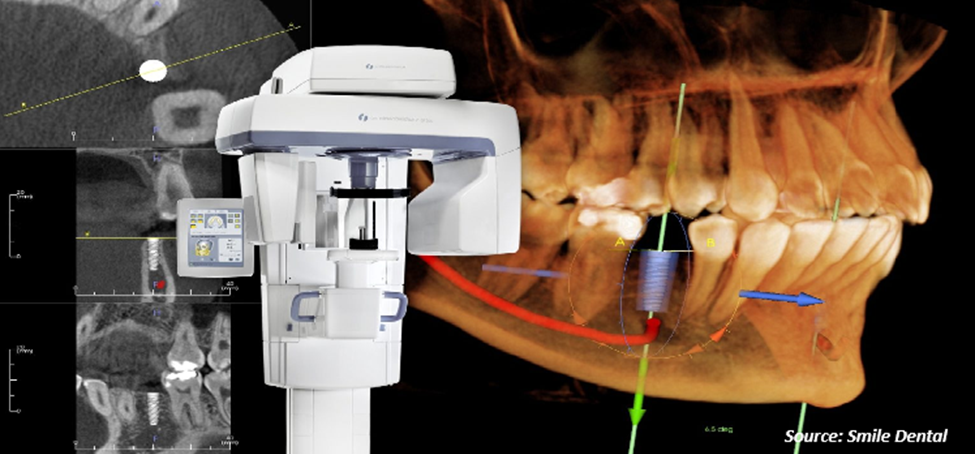
Breast Imaging Technologies Market by Technology (Ionizing, Non-Ionizing) - Global Opportunity Analysis and Industry Forecast, 2020 – 2030
Industry: Healthcare | Publish Date: 18-May-2020 | No of Pages: 319 | No. of Tables: 174 | No. of Figures: 144 | Format: PDF | Report Code : N/A
Market Definition
The global Breast Imaging Technologies Market size valued to USD 3.54 billion in 2019, is predicted an elevation up-to USD 7.43 billion by 2030, with a growing CAGR of 6.90% from 2020-2030.
The breast imaging technology is a branch of diagnostic radiology that deals with the imaging of breasts for screening and diagnosis purpose. It provides high-resolution images of breast tissues using x-rays, MRI, sonography, and other breast imaging modalities. The ionizing and non-ionizing imaging modalities, assist in the early detection and examination of breast diseases, especially breast cancer in women.
Market Dynamics and Trends
According to WHO, more than 627,000 women died from breast cancer in the year 2018, with death rates increasing in every region at global level. The increasing incidences of breast disease in women, especially breast cancer, augments the demand for breast imaging modalities, to assist in the early diagnosis, prevention, and treatment of breast disease; hence propelling growth of the global breast ultrasound market.
The global breast imaging technologies market is observing a substantial growth from past few years, and is expected to hike tremendous growth in the coming future. The factors fostering the market growth are, increasing initiatives by government & non-government organizations to raise awareness about early breast cancer detection, technological advancements in breast imaging modalities, and developments of the healthcare infrastructures.
However, high cost of imaging technologies, errors associated with screening process, stringent regulations, and lengthy approval processes, are anticipated in hampering the growth of breast imaging technologies market, during the forecast period.
Moreover, factors such as increasing investments by regulatory bodies in healthcare developments as well as free campaigns in-order to reduce the rates of breast cancer in women, proactive initiatives by healthcare organizations to fight cancer, and growing investments for the R&D activities in the medical sector are expected in fuelling-up the breast imaging technologies market growth in coming future.
Market Segmentations and Scope of the Study:
The breast imaging technologies industry share analysis is based on technology and geography. Based on technology, the breast imaging technologies market report is segmented into ionizing and non-ionizing. The ionizing segment is further divided into full-field digital mammography, cone-beam computed tomography, analog mammography, positron emission tomography & computed tomography, positron emission mammography, electric impedance tomography, 3D breast tomosynthesis, and MBI/BSGI. The non-ionizing segment is further sub segmented into MRI, optical imaging, automated whole-breast ultrasound, thermography, and ultrasound. Geographic breakdown and analysis of each of the previously mentioned segments include regions comprising North America, Europe, Asia-Pacific, and RoW.
Geographical Analysis
North America is expected to dominate the global breast imaging technologies market, accounting for the highest market shares. This is attributed to factors such as well-established healthcare infrastructures, better reimbursement facility, higher adoption of advanced medical technologies, higher investments in R&D activities, presence of key players and cutting-edge product launches.
Asia-Pacific region is expected to witness a substantial growth in the global breast imaging technologies market with the highest CAGR values, owing to factors like, increasing government & non-government initiatives to prevent breast cancer, and constant development in the healthcare infrastructures.
Competitive Landscape
Comprehensive competitive analysis and profiles of the major market players such as GE Healthcare, Hologic, Inc., Fujifilms Holdings Corp., SonoCine, Inc., Philips Healthcare, Gamma Medica, Inc., Siemens Healthcare, Toshiba Corporation, Dilon Technologies, Inc., Aurora Imaging Technology, Inc., and others are provided in the breast imaging technologies market report. The past endeavors, present developments and futuristic advancements, sum-up to comprehend the overall growth of the global Breast Imaging Technologies Market.
For instance, in April 2020, the pioneer of breast cancer treatment and diagnosis as well as the owner of the Navigator Gamma Probes, Dilon Technologies Inc., announced complete acquisition over all the assets of Dune Medical, including its "MarginProbe". With this acquisition, Dilon opts to offer only FDA approved devices for identifying positive margins during breast conservation surgery, as well as aid in differentiating cancerous versus healthy tissue in real-time.
This will allow the surgeons to remove additional tissue, helping to reduce avoidable surgeries. Dilon's Navigator Gamma Probes are utilized for radio-guided lymphatic mapping and tumor localization. This impeccable combination of key players shall prove to be highly advantageous to the patients, and by reducing the re-excision rate it will provide major savings to the health care systems.
Key Benefits
-
The breast imaging technologies market report provides a quantitative analysis of the current market and estimations through 2020-2030 that assists in identifying the prevailing market opportunities to capitalize on.
-
The study comprises a deep dive analysis of the market including current and future trends for depicting the prevalent investment pockets in the market.
-
The report provides detailed information related to key drivers, restraints, opportunities and their impact on the market.
-
The report incorporates competitive analysis of the market players along with their market share and market size in the global market.
-
The study elaborates SWOT analysis and Porters Five Forces model along with market trend analysis.
-
Value chain analysis in the breast imaging technologies market study provides a clear picture of the stakeholders’ roles.
Breast Imaging Technologies Market Key Segments:
By Technology
-
Ionizing
-
Full-Field Digital Mammography
-
Cone-Beam Computed Tomography
-
Analog Mammography
-
Positron Emission Tomography & Computed Tomography
-
Positron Emission Mammography
-
Electric Impedance Tomography
-
3D Breast Tomosynthesis
-
MBI/BSGI
-
-
Non-Ionizing
-
MRI
-
Optical Imaging
-
Automated Whole-Breast Ultrasound
-
Thermography
-
Ultrasound
-
By Geography
-
North America
-
U.S.
-
Canada
-
Mexico
-
-
Europe
-
UK
-
Germany
-
France
-
Italy
-
Spain
-
Rest of Europe
-
-
Asia-Pacific
-
China
-
India
-
Japan
-
Rest of Asia-Pacific
-
-
RoW
-
Latin America
-
Middle East
-
Africa
-
REPORT SCOPE AND SEGMENTATION:
|
Parameters |
Details |
|
Analysis Period |
2019–2030 |
|
Base Year Considered |
2020 |
|
Forecast Period |
2020–2030 |
|
Market Size Estimation |
Billion (USD) |
|
Market Segmentation |
By Technology (Ionizing, Non-Ionizing) |
|
Geographical Segmentation |
North America (US, Canada, Mexico) Europe (Germany, UK, France, Italy, Spain, Rest of Europe) APAC (China, Japan, India, Rest of APAC) Rest of World (Latin America, Middle East, Africa) |
|
Companies Profiled |
GE Healthcare, Hologic, Inc., Fujifilms Holdings Corp., SonoCine, Inc., Philips Healthcare, Gamma Medica, Inc., Siemens Healthcare, Toshiba Corporation, Dilon Technologies, Inc., Aurora Imaging Technology, Inc. |
KEY PLAYERS
-
GE Healthcare
-
Hologic, Inc.
-
Fujifilms Holdings Corp.
-
SonoCine, Inc.
-
Philips Healthcare
-
Gamma Medica, Inc.
-
Siemens Healthcare
-
Toshiba Corporation
-
Dilon Technologies, Inc.
-
Aurora Imaging Technology, Inc.




 Speak to Our Analyst
Speak to Our Analyst


































